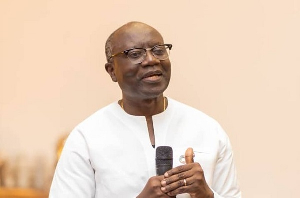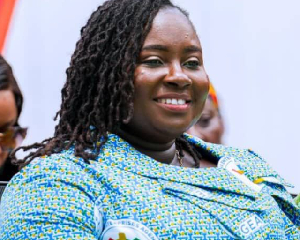– A Narrow Interpretation Of What The Capital Of A Nation Is
Kwabena Fosu-Mensah argues against the ‘you have to be in Accra to matter’ mentality and illustrates it with one recent example.
From the day Accra became the capital of Ghana in 1877, the city has become Ghana and nothing appears to have changed that mentality in the real sense of the word in spite of the much-touted decentralisation policy of various Ghana governments.
The attitude of many a people in responsible positions and institutions including central government itself is that unless you live in or operate from Accra, you do not get a look-in when it comes to national affairs. There are numerous instances where one company in Accra is given a government contract that covers the entire country even though there are contractors in other cities, towns and villages in Ghana who could have also been given part of the contract covering their locality.
Major road networks in parts of the country (e.g. Sofoline/Abuakwa in Kumasi, Suhum on the Accra/Kumasi road) were started several years ago but there are no signs that they will ever be completed anytime soon in the real sense of the word. Yet another new major road project has started in Accra at Kwame Nkrumah Circle. Just because it is in Accra, time and resources have been put into it and will surely be completed and probably even on time.
Accra benefits from an undue share of national resources to the extent that the city will forever continue to attract new residents (both young and old) from other parts of the country. That in itself will continue to put pressure on Accra in terms of infrastructure; the cost of living in Accra will also continue to rise.
Even the history of national commissions or committees is replete with instances of being composed of exclusively people who are either ordinarily resident or based in Accra as if people who live in other cities, towns and villages are not capable of making any contribution to national affairs.
Just one example would suffice. The Sports Minister Hon. Mahama Ayariga, on the authority of President John Mahama, recently appointed an 11-member committee with 6 ambassadors to serve as Ghana’s bid committee to ensure that the nation wins the right to host the 2017 Africa Football Cup of Nations.
The committee has completed its work and enabled Ghana to officially submit her bid to host the 2017 Orange Africa Cup of Nations to the headquarters of the Confederation of Africa Football (CAF) in Cairo, Egypt on time.
Notwithstanding the good work which the committee might have done, the fact still remains that the composition of the committee and the ambassadors confirms as amply illustrated below the perpetration of this mentality of ‘you have to be in Accra to matter’ even at government level.
Committee Member Resident or based in Accra
Ernest Thompson ?
Abedi Ayew ?
Randy Abbey ?
Committee Member Resident or based in Accra
Herbert Mensah ?
Dr. Nyaho Tamakloe ?
Lepowura MND Jawula ?
Nana Sam Brew Butler ?
Alex Mould ?
Rex Danquah ?
Alhaji Abdulai Yakubu ?
Ambassador Resident or based in Accra
Stephen Appiah ?
Tony Yeboah ?
Tony Baffoe ?
Ibrahim Sunday ?
Abdul Razak ?
Azumah Nelson ?
The assignment given to this committee and the ambassadors was about football and it is an undeniable fact that Kumasi by virtue of being the headquarters of Asante Kotoko Football Club has contributed immensely to football in Ghana since 1935. At the very least, football experts in Kumasi should have been represented on this committee, not to talk of other cities and towns who have equally competent and able football administrators, managers and experts.
Traditionalists may argue that distance between cities and towns may pose challenges to all-Ghana commissions and committees. It might be argued also that the period within which the committee was expected to put the bid together was too short for it to involve persons who reside or are based outside Accra.
Both arguments cannot stand as modern technology has a cure for most of these challenges. Besides, where there is a will there is a way.
Was it a mere oversight on the part of the government or the usual mentality of ‘you have to be in Accra to matter’ which prompted the appointment of only people who are either resident or based in Accra?
Whatever the reason, this mentality must change. Resources, both human and otherwise, are scattered all over the country. Let us not continue to think and conduct our business as if Accra is the only place in Ghana which matters.
The author is an ethical governance expert
Opinions of Sunday, 16 November 2014
Columnist: Fosu-Mensah, Kwabena


















